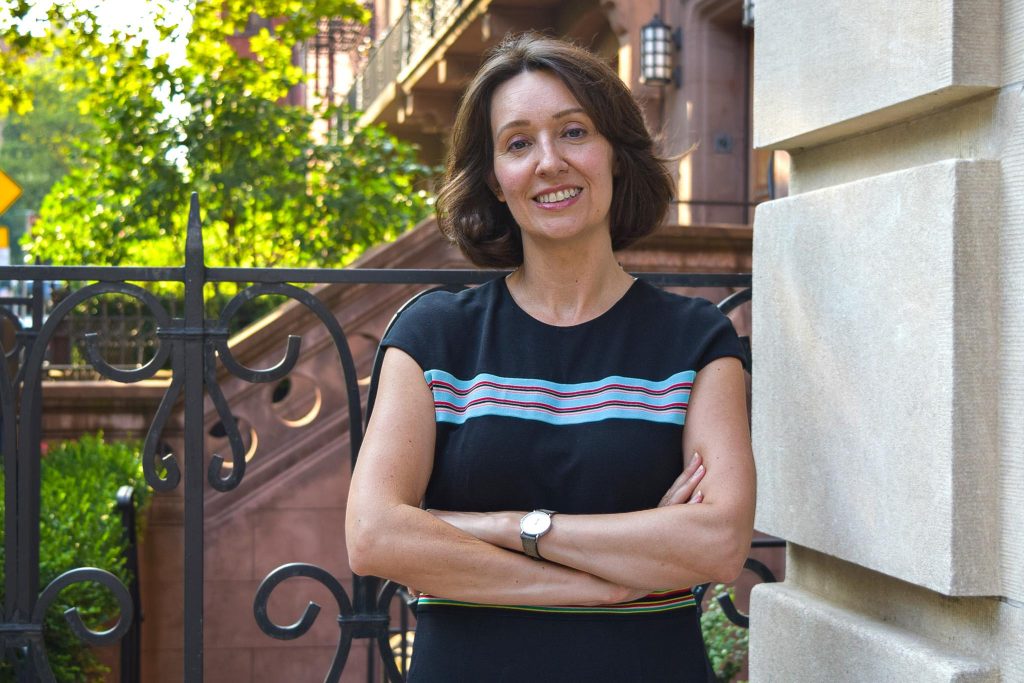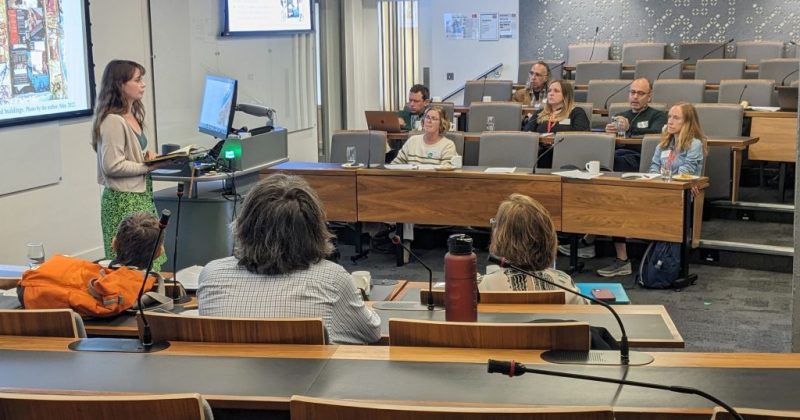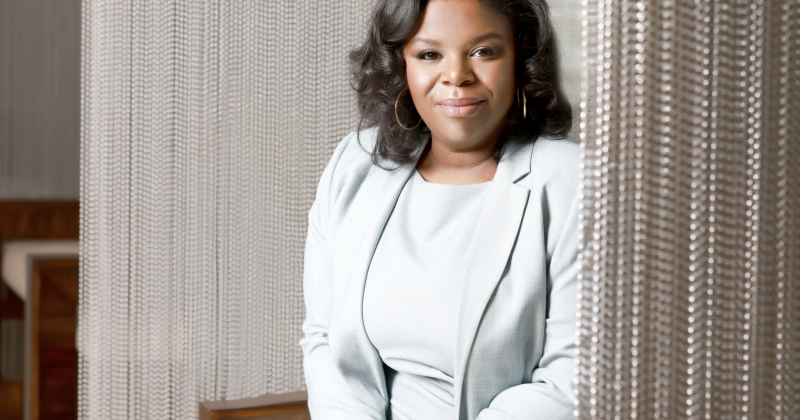
Alexandrea Ravenelle in Stuyvesant Square in New York City.
Alexandrea Ravenelle’s latest book explores how COVID-19 affected the most vulnerable wage-earners.
The COVID pandemic upended the traditional work environment, fundamentally transforming how many people work. For some, the pandemic was an opportunity to recalibrate a career path, sometimes testing the entrepreneurial waters. Others, particularly lower wage earners, survived by stringing together multiple part-time or gig jobs.
People in freelance, contract and gig jobs, such as Uber drivers and Instacart shoppers — also known as 1099 workers — have acutely felt the repercussions of this economic instability. Alexandrea Ravenelle, an assistant professor of sociology, is examining the impact of the pandemic on these workers’ lives. She has recently published her second book on gig workers, this time with a focus on the experience of gig workers during the pandemic.
It was while conducting research for her dissertation and ultimately her first book, Hustle and Gig: Struggling and Surviving in the Sharing Economy, published in 2019, that Ravenelle realized the gig economy was much more complex than a chance to “be your own boss.”
“I interviewed just short of 80 New York City gig workers in various platforms such as Uber, DoorDash and TaskRabbit,” she said. “And I found that the gig economy is a movement forward to the past, to an age where workplace protections are virtually nonexistent and where workers are incredibly vulnerable to a number of risks including on-the-job injuries, sexual harassment and economic harms.”
With the COVID pandemic ramping up in early 2020 just as she began teaching at Carolina, Ravenelle shifted gears from a plan to focus on elite gig workers (those earning around $1,000 per day) to examine the vulnerability of these low-wage workers during a once-in-a-lifetime pandemic.
A National Science Foundation RAPID grant funded her work to interview 199 gig and “precarious workers”— people who are underemployed or who are in unstable jobs with little advancement opportunity. The interviews encompassed three groups: gig workers, low-wage W-2 workers and creative freelancers (such as dancers, models, photographers).
Those interviews led to her new book, Side Hustle Safety Net: How Vulnerable Workers Survive Precarious Times, recently published by the University of California Press. It highlights the consequences of pandemic-fueled economic instability on these workers.
On a broader scale, Ravenelle said, these stories shed light on the larger issues of inequality in society, namely the disparity in outcomes for people who receive unemployment assistance — the “officially unemployed” — and the “forgotten jobless” who have to struggle on their own.
Surprisingly, she found that some people who qualified for unemployment through the CARES Act chose to not apply — they believed they didn’t qualify or they thought it was stigmatizing — and missed a valuable opportunity.
People who applied for unemployment assistance often found far-reaching benefits, she said: “The benefits allowed them to rest, reflect and reset. Some workers ultimately changed careers, such as the long-time Uber driver who took a job as a community habilitation specialist.”
In fact, by the fall of 2021, one worker had created a lucrative dog-boarding business in Brooklyn and already had five employees on the payroll. “It’s amazing what a relatively small investment in these workers can yield!” Ravenelle said.
Interviewing people multiple times not only created a rapport with them, she explained, it also shed light on how the pandemic affected their lives during various surges.
This fall Ravenelle is in New York City as a Russell Sage Foundation Visiting Scholar and will work on her next book, which examines the impact of ending pandemic-era supports even as the pandemic itself continued. Thanks to a second NSF grant, Ravenelle will also be following up with these workers one more time.
“The COVID pandemic might be a fleeting moment in time, but examining the long-term impact on people’s lives provides insight into helping the most vulnerable among us,” she said.
By Patty Courtright (B.A. ’75, M.A. ’83)
Published in the Fall 2023 issue | Faculty Up Close, Tar Heels Up Close
Read More

Add to your reading list: More books by College faculty and alumni
In addition to our Chapter & Verse feature, enjoy more…

Graduate students enhance career skills with King’s College partners
More than 30 Carolina graduate students advanced their research and…


